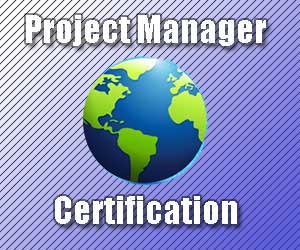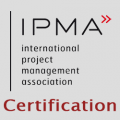
The IPMA level D designation is an entry level project management certification issued by the International Project Management Association (IPMA) through member associations in each country. The nickname for level D certification is ‘Certified Project Management Associate.’
There are about 175,000 certifications worldwide in level D, the lowest of the four levels of IPMA certification.
- Level A (IPMA-A): Program manager, or a manager of multiple projects. This is effectively not a “project manager” certification in its strict sense.
- Level B (IPMA-B): Manager of larger, or complex, projects which require significant application of project management principles.
- Level C (IPMA-C): Manager of smaller projects for which stakeholder relationships are usually more important than strict adherence to project management fundamentals.
- Level D (IPMA-D): Project management associate, similar to CAPM.
Here are some descriptions of the type of people who might want to take an IPMA level D certification:
- People who are in a technical role and wish to demonstrate project management competence in the hopes of moving up into project management.
- People who manage small projects, or on a part time basis.
- People who wish to demonstrate competence in project management even though they do not manage projects.
The IPMA-D certification requires no experience or undergraduate degree. The letters “IPMA-D” are used after one’s name upon certification.
The IPMA is the global organization that develops the standards and the member (country) associations act as certifying bodies. It is these member associations that preside over the certification process, therefore you need to find the association in your country and determine the requirements directly from them. Because those requirements change we cannot give you exact details that apply in every country.
In fact, even the designations themselves are different in some countries, for example, in Canada the IPMA-D certification is called Certified Project Management Associate (CPMA). Thus, we will outline the IPMA specifications on this page but most of the content below is subject to change from country to country.
Education Requirements
All IPMA levels require a written exam, the content of which is taken from the IPMA Individual Competence Baseline. This document outlines the three levels of competence required of project professionals: Behavioural, contextual, and technical. The ICB contains 46 individual items of competence on which project professionals are judged.
This exam usually has multiple choice as well as written response questions.
Experience Requirements
There are no experience requirements to become IPMA-D certified.
Other Requirements
You must perform a “self-assessment” using the 46 competence elements within the Individual Competence Baseline. This involves a 0-4 rating on elements like:
“P1.2.1. Know the principles of project management and the way they are implemented.”
You can give yourself glowing marks and IPMA will not withhold the exam. But if you want to reap the benefits of the exercise (and study for the exam) you need to learn the knowledge behind the elements and attempt to score yourself realistically.
Official Textbook
The official textbook is called the IPMA Individual Competence Baseline (ICB). This book is available free from the IPMA’s website.
Cost
In the United States, the cost for the application is $300. This will vary from country to country.
Maintenance
The certification is valid for 5 years, after which another self-assessment must be submitted. The re-assessment fee is $300.
Learn More
To learn more, surf the IPMA web site and check out the IPMA level D page.
More stuff from ProjectEngineer:






